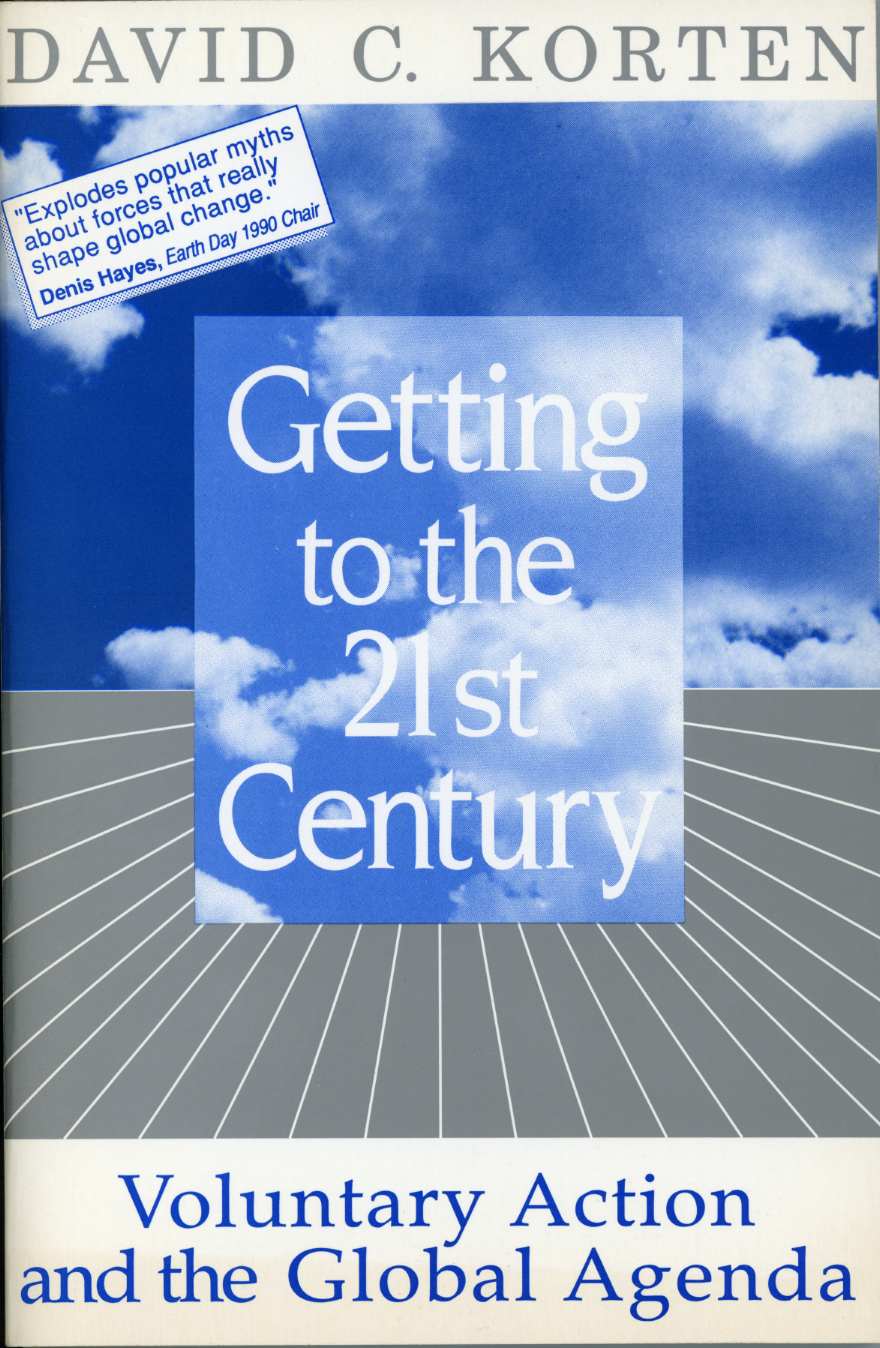PCDForum Campaign I: Challenging the story that the foreign aid system serves the poor (1990-1995).
[See the The Forum and the Economic Story Revolution]
The New Story: Far from easing the burdens of poverty, the policies and programs of foreign aid programs commonly transfer economic power and resources from weak to strong nations and from poor to rich people. Real progress depends on people gaining equitably distributed local control over economic priorities and resources and building their capacity to manage those resources in response to their own needs and values. The leadership for positive change must come from citizen movements.
The Book: Getting to the 21st Century: Voluntary Action and the Citizen Agenda (1990).
Primary Partner Organizations: Asian NGO Coalition and InterAction
The Forum’s Role
In March 1987, several of the Forum’s founders, including David Korten, participated in a Symposium in London on “Development Alternatives: The Challenge for NGOs.” They were among more than a hundred development professionals, mostly leaders of non-governmental organizations, from forty-two countries. Speaker after speaker spoke of the social and environmental devastation wrought by the conventional growth-centered economic models promoted by official aid agencies and many NGOs.
The opening keynote speaker, Tim Brodhead, presented a framework from a paper by Korten, “Third Generation NGO Strategies: A Key to People-Centered Development” that was included in the proceedings of the conference published in the World Development journal
The conclusion was clear and unequivocal. The development policies and strategies promoted by most official aid agencies benefit the rich at the expense of the poor and the environment. A fundamental change is imperative and the leadership will not come from establishment institutions. It must come from citizen action. This became the framing theme of Getting to the 21st Century: Voluntary Action and the Citizen Agenda.
The People-Centered Development Forum was launched on January 1, 1990 in Manila, Philippines, where Korten was living at the time. Getting to the 21st Century, which outlined the Forum’s agenda, was launched soon thereafter.
In 1991, the editors of the World Policy Journal invited Korten to write a review of the current literature on “Sustainable Development.” It turned out to be a comprehensive critique of contemporary development thinking and economic theory. Its publication in a leading policy journal established the intellectual credentials of the Forum.
By the end of 1991, the Forum had signed on as Contributing Editors 86 intellectual-activists from 31 countries who were at the forefront of thought and action challenging the conventional development paradigm and the official agencies that promoted it. Our primary activities were dialogue and communication outreach aimed at framing and communicating a new story on economic development and foreign aid.
From 1990 through 1997, the Forum maintained an Information Service that distributed path breaking think pieces written by its contributing editors and distributed through cooperating publications around the world. These pieces are available in our Information Service Archive.
PCDForum keynote presentations, workshops, and publications helped to unleash and shape what became a global resistance movement against the policies of the World Bank and IMF that grew to involve millions of people and significantly weakened the legitimacy and credibility of both of these institutions.
<Next: Corporate Globalization>

